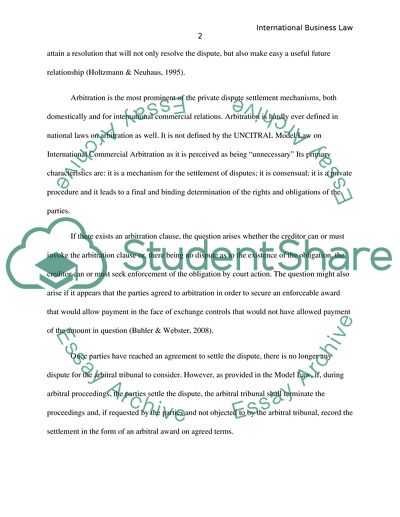Cite this document
(International Commercial Arbitration as an Alternative Dispute Coursework - 2, n.d.)
International Commercial Arbitration as an Alternative Dispute Coursework - 2. Retrieved from https://studentshare.org/law/1750305-international-aspects-of-business-law
International Commercial Arbitration as an Alternative Dispute Coursework - 2. Retrieved from https://studentshare.org/law/1750305-international-aspects-of-business-law
(International Commercial Arbitration As an Alternative Dispute Coursework - 2)
International Commercial Arbitration As an Alternative Dispute Coursework - 2. https://studentshare.org/law/1750305-international-aspects-of-business-law.
International Commercial Arbitration As an Alternative Dispute Coursework - 2. https://studentshare.org/law/1750305-international-aspects-of-business-law.
“International Commercial Arbitration As an Alternative Dispute Coursework - 2”, n.d. https://studentshare.org/law/1750305-international-aspects-of-business-law.


